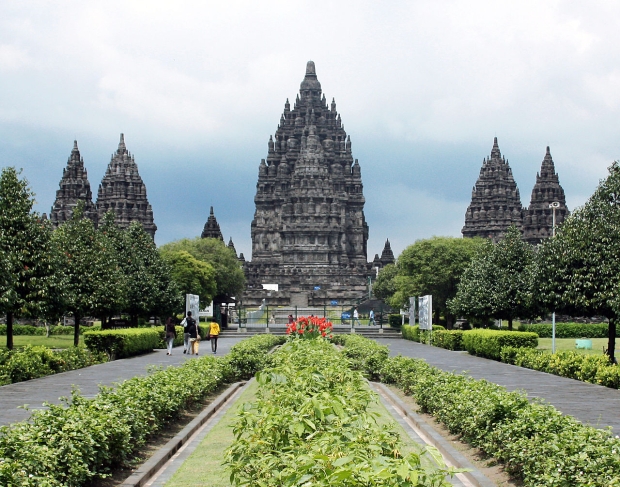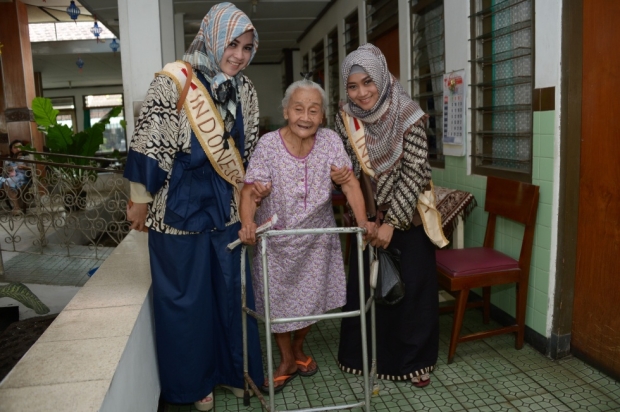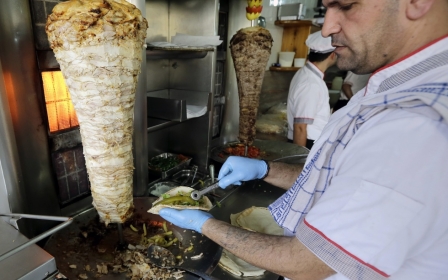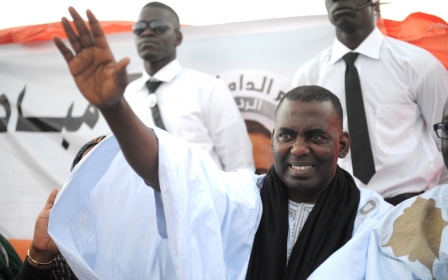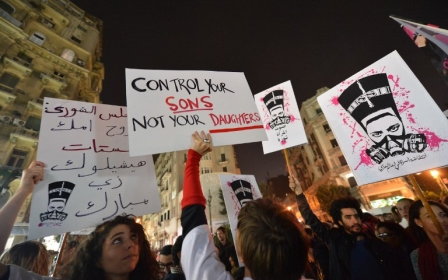Tunisian wins Muslim beauty pageant, calls for free Palestine
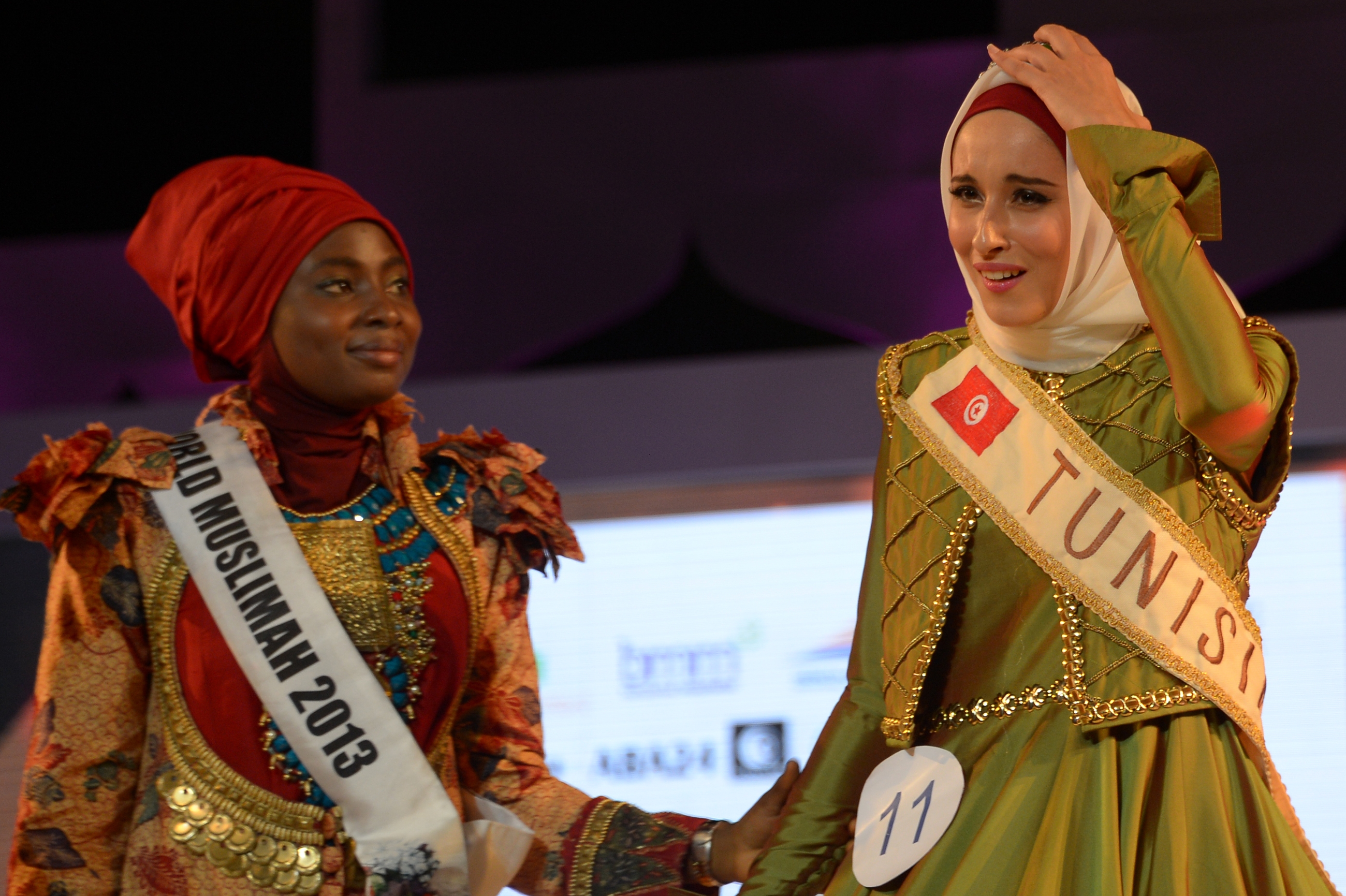
A Tunisian pageant winner used her acceptance speech to call for a free Palestine in Indonesia on Friday.
Computer scientist Fatma Ben Guefrache was crowned winner of the 2014 World Muslimah competition, seen as a counter to Western beauty contests.
Guefrache beat off seventeen other finalists, who included a doctor and several teachers.
The hopefuls, competing in the world's most populous Muslim-majority country, paraded in glittering dresses against the backdrop of world-renowned ancient temples.
In her acceptance speech, the tearful 25-year old winner chose not to shy away from politics, as is the custom in traditional beauty contests.
"May almighty Allah help me in this mission, and free Palestine, please, please, free Palestine and the Syrian people.”
The competition, which is open only to Muslims, was this year held in the magnificent Hindu holy site, the Prambanan Temple, in central Java.
Hosting the event at a Hindu site was a conscious decision to show that Muslims are accepting of other religions, organisers said.
The 18 finalists, who came from countries as diverse as Nigeria, Iran, Trinidad and the UK, were judged not only on their appearance but also on their intelligence and their views on Islam in the modern world.
From this pared-down group of finalists, the overall winner was selected by a group of 100 orphaned youths.
During their time in Indonesia, contestants have visited orphanages and nursing homes, and had their pictures taken at Borobudur, a famous Buddhist temple close to Yogyakarta, Java's cultural heartland.
"We don’t look at it as a pageant - we look at it as an award to give to one lady so she can inspire others," said Jameyah Sheriff, one of the competition organisers.
Established in 2011, the World Muslimah Award drew global attention in 2013, when organisers presented it as a peaceful protest against the more mainstream Miss World taking place around the same time on the Indonesian island of Bali.
Miss World’s controversial bikini round was axed for the 2013 competition amid criticism from clerics, who dubbed the round “an excuse to show women’s body parts.”
While it remains popular in some countries, British-run Miss World is seen by many as degrading to women, and the round in which contestants pose in bikinis has long proved a lightning-rod for criticism.
‘This scarf on my head isn’t scary’
British contestant Dina Torkia, a successful designer and blogger, said she hoped this year's World Muslimah Award would not only provide a contrast to Western beauty pageants, but would also help to dispel prejudices against Islam.
"I think the most important thing is to show that we are really normal girls, we are not married to terrorists. This scarf on my head isn't scary," she told AFP.
Despite high hopes, the 2014 pageant has faced challenges - seven finalists dropped out, and others struggled to obtain a visa amid Indonesia's complex bureaucracy.
A contestant from India missed her initial flight due to lengthy questioning by officials suspicious of a woman travelling alone and wearing a headscarf.
Others have gone to great lengths to take part in the event - Masturah Binte Jamil quit her teaching job in Singapore after her employer would not give her time off to participate.
Though many were enthusiastic, not everyone was enjoying the final rounds.
Britain's Torkia said that her initial optimism had turned to disappointment.
"I came into this competition hoping that I would leave with my faith increased, but so far it's been a lot about promotion and media and looking nice," she said.
New MEE newsletter: Jerusalem Dispatch
Sign up to get the latest insights and analysis on Israel-Palestine, alongside Turkey Unpacked and other MEE newsletters
Middle East Eye delivers independent and unrivalled coverage and analysis of the Middle East, North Africa and beyond. To learn more about republishing this content and the associated fees, please fill out this form. More about MEE can be found here.


